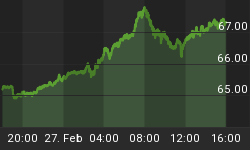With Europe’s proposed “link tax” facing its final vote in early 2019, Google is making pre-emptive threats to shut down Google News in Europe, citing the high cost of potentially paying publishers for every article in its aggregator for a service that isn’t that profitable to begin with.
Nor is it an empty threat: Google closed down its news service in Spain in 2014 over “link tax” legislation, and it’s never been relaunched.
At issue is Europe’s “Article 11”, is the ominous punchline to the European Union’s General Data Protection Regulation (GDPR), which came into effect in May in an effort to give consumers control over their personal data collected by companies.
But the EU was just getting started with the GDPR, and “Article 11” could take things much further, with the introduction of strict new rules that require online platforms to filter out infringing content backed by rights holders.
And it’s this radical Article—also known as the “link tax”—that’s got the tech sector up in arms. The simplified version is that the link tax would force news aggregators like Google to pay for linking to press articles.
Google, for one, isn’t going to accept it, and it will simply mean the end to Google News across Europe—not only Spain.
But for now, Google is waiting to see what kind of language changes might come out of Article 11 before it goes up for a final vote in the New Year.
Speaking to The Guardian, Google’s VP of news, Richard Gingras, said they wouldn’t rule out shuttering Google News, but “we can’t make a decision until we see the final language”.
When Spain made a similar move on its own, Gingras said, Google News’ closure prompted a fall in traffic for Spanish news websites. Related: The Real Estate Reality Of America’s New Boom Cities
“We would not like to see that happen in Europe,” said Gingras. “Right now what we want to do is work with stakeholders.”
At its heart, Article 11 is meant to protect traditional publishers, who have had a hard time of things in the flourishing digital age. They both love and hate Google.
On one hand, publishers rely on Google to bring traffic to their websites; on the other hand, they bemoan the fact that Google eats up all the advertising revenue.
But Gingras points out that Google News itself doesn’t have advertising and is not a revenue-generating product. Instead, he describes it as a “service to society”.
There may be a few publishers that think Google and Facebook are profiting from their work, while the publishers languish in financial purgatory, but it’s not quite as simple as that. If Google has a pay a link tax for every article it aggregates, it will simply close down and publishers won’t benefit. In fact, the likelihood is that they will be in more trouble when Google isn’t getting their stories out there anymore.
So, right now, it’s down to the specific language.
As it stands, the link tax requires a negotiated, paid license for links that contain ‘excerpts’ of news stories, according to the Electronic Frontier Foundation, which adds that the Article is “extremely vague on what defines a ‘link’ or a ‘news story’ and implies that an ‘excerpt’ consists of more than a single word from a news-story”, which in turn could mean just the url itself.
Did it work in Spain? Well, it the purpose was to get rid of Google News—yes. If the purpose was to drastically reduce the traffic of Spanish news sites—yes, again.
A year after the law was implemented, a study commissioned by Spanish publishers found that it had resulted in substantial damage to the Spanish news industry, costing publishers—in the short-term—some $11 million, with smaller publishers hit the hardest.
Related: Gold Miners Face More Bearish Pressure
Google hasn’t given up, though, but it is running out of time to influence the outcome of this legislation before it goes up for a final vote.
Article 11 was originally proposed in July, but drafters had to go back to the drawing board because it was determined to be too harsh. Since then, it has undergone a few changes, including the “more than a single word” part. Previously, it also penalized hyperlinks with “individual word” descriptions. It also added some benefits in for journalists, allowing them to be compensated by publishers who would in turn be compensated by any aggregator linking to their articles.
In September, the amended legislation was backed by EU parliament, and now Europe is only some closed-door talks away from final approval in 2019, which will likely mean the end of Google News in European Union countries, which could leave the UK out of the mix if it goes down after Brexit.
By Michael Kern for Safehaven.com
More Top Reads From Safehaven.com:
















